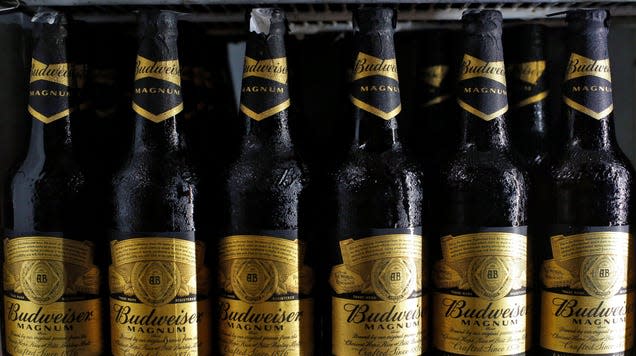Foreign alcohol brands are banking on India’s love for the hard stuff

Global brewers are rarely short of a high in India. What’s adding tingle to the world’s third-largest market for alcoholic beverages is its increasing “premiumization.”
Estimated at $52.5 billion in 2020, India’s alcoholic drinks market was set to grow 6.8% annually between 2020 and 2023, according to the Indian Council for Research on International Economic Relations (ICRIER).
Read more
No wonder, global brands are piling their barrels on India’s cart.
Belgian Anheuser-Busch InBev (AB InBev), which owns the popular Budweiser brand, yesterday (Nov. 9) ventured into India’s whiskey segment, Business Standard newspaper reported.
Last month, Cuba-based company Bacardi forayed into the same. It also launched Good Man brandy earlier this year.
What makes India a key market for foreign liquor brands
Heavier drinks like rum, whiskey, and brandy rule the Indian market, with whiskey accounting for up to 72%, according to market analysis firm IWSR.
Consumption has been shifting towards premium spirits like gin, tequila, scotch, and such, IWSR has found.
The premium whiskey segment alone was growing at 15-18% in India, according to Kartikeya Sharma, president of India and South East Asia operations of AB InBev. France-based Pernod Ricard, which controls about a fourth of India’s whiskey market, expanded its Indian business by 21% in the July-September quarter (pdf).
“We are focused on building on the premium and premiumization trend that is happening and the alcobev [alcohol beverage] category is not different from this. It is not just tier-I but tier-II towns are also seeing a lot of premiumization,” Vineet Sharma, chief marketing officer of AB InBev India said.
Home delivery appears to be the other big bet. A LocalCircles survey from May 2021 showed that 81% of Indian consumers prefer getting liquor delivered at doorsteps.
Beverage makers, however, have their fair share of obstacles too.
The problematic liquor tax structure in India
The various Indian state governments earn a big portion of their revenue from excise and value-added tax on alcoholic drinks.
All imported drinks—spirits and wines—attract a customs duty of up to 150%, which is among the world’s highest. This is levied on volume, not on its ethanol content.
This means beer, which for instance has only 5% alcohol by volume (ABV) and is 90% water, attracts the same charge as hard liquor with over 90% ABV.
The state governments, therefore, believe that by taxing beer, they would generate more revenue, industry stakeholders said.
“It’s hard to fathom why in India, mild beer has the highest duty per percentage of alcohol content as compared to hard liquor (approximately 40% ABV). It is even more paradoxical for a country that has a deep-seated value system anchored on moderation,” Shantanu Upadhyay, co-founder of Indian craft beer brand Kati Patang, told Brewer World in 2020.
More from Quartz
Sign up for Quartz's Newsletter. For the latest news, Facebook, Twitter and Instagram.

